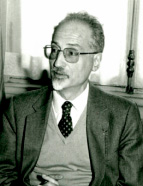

More specifically, regarding Aubin’s studies related to Portuguese India, we should emphasise that they revealed, from the perspective of “the journey of men, the history of events and ideals” (Couto, “Jean Aubin”, 2001: p. 728), the conditions that led to the formation of the first European empire in Asia in the decisive years of 1505-1520. We refer, for example, to the study of the ideological influence of Duarte Galvão at the court of King Manuel and the awakening of Manueline imperial messianism (Aubin, “Duarte Galvão”, in: Le Latin et L’Astrolabe.I , 1996: pp.11-48). Or the defeat of Afonso de Albuquerque in Aden in Yemen, after the conquest of Ormuz, Goa and Malacca, and also the influence exerted on the governor by his Castilian Jewish secretaries, Francisco de Albuquerque and Alexandre de Ataíde. (Id., “Albuquerque et les négociations de Cambaye” and “Francisco de Albuquerque”, in: Le Latin et L’Astrolabe.II, 2000: pp.197-250 and pp.251-279). We should also highlight Aubin’s decisive contribution to our knowledge of the history of the Portuguese settlement (1503-1504) on the Malabar Coast, based in Cochin, and the decisive role played in this process by the navigator, military man and “wise cosmographer” (Id., “Les frustrations de Duarte Pacheco Pereira”, in: Revista de História da Universidade de Coimbra , no. XXXVI, 1991, pp. 181-204), Duarte Pacheco Pereira.
Furthermore, Aubin’s interest in Duarte Pacheco, author of the famous treatise Esmeraldo de Situ Orbis (1508), “a compendium of mathematical erudition and the art of navigation, but also an apologetic work on the royal policy of Portuguese expansion” (Couto, “Jean Aubin”, 2001: p. 728), would lead him to attach great importance to the presence of the Christian crusade ideology in the construction of the Portuguese State of India, as well as to the unavoidable connections between the history of Portuguese cities in India and that of Luso-Ethiopian relations. Aubin thus published innovative works on the Portuguese alliance with the Christian kingdom of Prester John in Ethiopia and the Portuguese ambition to dispute control of the Red Sea with the Ottoman Empire (Aubin, “L’ambassade de Prêtre Jean à D. Manuel” and “Le Prêtre Jean devant la Censure Portugaise”, in: Le Latin et L’Astrolabe.I, 1996: pp.133- 182 and pp.183-210).
This work is financed by national funds through FCT - Foundation for Science and Technology, I.P, in the scope of the projects UIDB/04311/2020 and UIDP/04311/2020.
